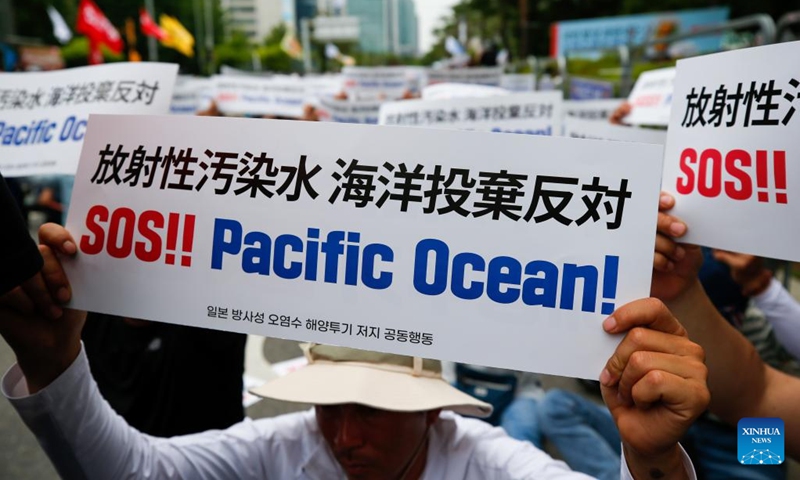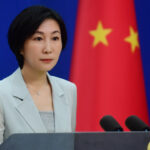The system that Japan will use to dump nuclear-contaminated wastewater into the ocean has moved closer to completion, as the operator of the crippled Fukushima Daiichi nuclear power plant on Monday removed heavy machinery used to drill the tunnel for the release, which comes amid continuous and growing opposition both at home and abroad.
According to NHK news outlets, the Tokyo Electric Power Company removed heavy machinery from waters one kilometer off the coast of the plant on Monday morning and planned to place a cover on the tunnel’s outlet to prevent the ingress of mud and sand, which will be the final step in the system’s construction.
The discharge system will be ready for operation once it passes Japan’s Nuclear Regulation Authority’s inspection, which is set to start Wednesday, The Japan Times reported. “I was able to confirm that preparations [for the discharge] are progressing steadily,” said the authority’s chairman Shinsuke Yamanaka while inspecting the facilities on Saturday, according to Yomiuri Shimbun.
Japan, which planned to dump the nuclear-contaminated wastewater into the Pacific Ocean by around this summer, has forcibly pushed forward the process despite strong opposition from domestic groups, neighboring countries and international community.
Nuclear radiation will become an international problem as soon as it is discharged into the ocean, a shared global resource, and it is premature for Japan and the International Atomic Energy Agency (IAEA) to make a judgment without conducting a safety check on the potential damage caused by nuclear-contaminated wastewater in the future, Yoshitaka Ikarashi, the Japanese representative of the Somei Platform – the Japan-China common market promotion association – and also a resident in Iwaki, Fukushima Prefecture, told the Global Times on Monday.
“An ocean discharge may have been acceptable to the world if we had gathered the wisdom from around the globe but were still unable to solve the problem. But currently, the government is not making its best effort,” Ikarashi pointed out.
Masanobu Sakamoto, the head of Japan’s national fisheries cooperatives, reiterated his group’s opposition to the discharge plan while meeting with Japan’s Economy and Trade Minister Yasutoshi Nishimura on Thursday, demanding the government take full responsibility for any negative impact on the industry.
A survey conducted by Hong Kong Federation of Trade Unions showed that most local respondents also oppose the Japanese government’s plan to discharge the nuclear-contaminated water into sea, and many of them plan to buy less food imports from Japan and are more hesitant to visit the country due to the dumping plan, as they do not trust Japan’s food safety certificate mechanism, the South China Morning Post reported Friday.
“While the earthquake and the nuclear accident were initially domestic issues, the discharge plan would make it a pollution problem that cannot be decided by a single country. Considering the strong concerns expressed not only in East Asia but also around the world, it’s very urgent for us to think about the consequences if the release occurs and find the right way to deal with it,” said Ikarashi.
(Global Times)




